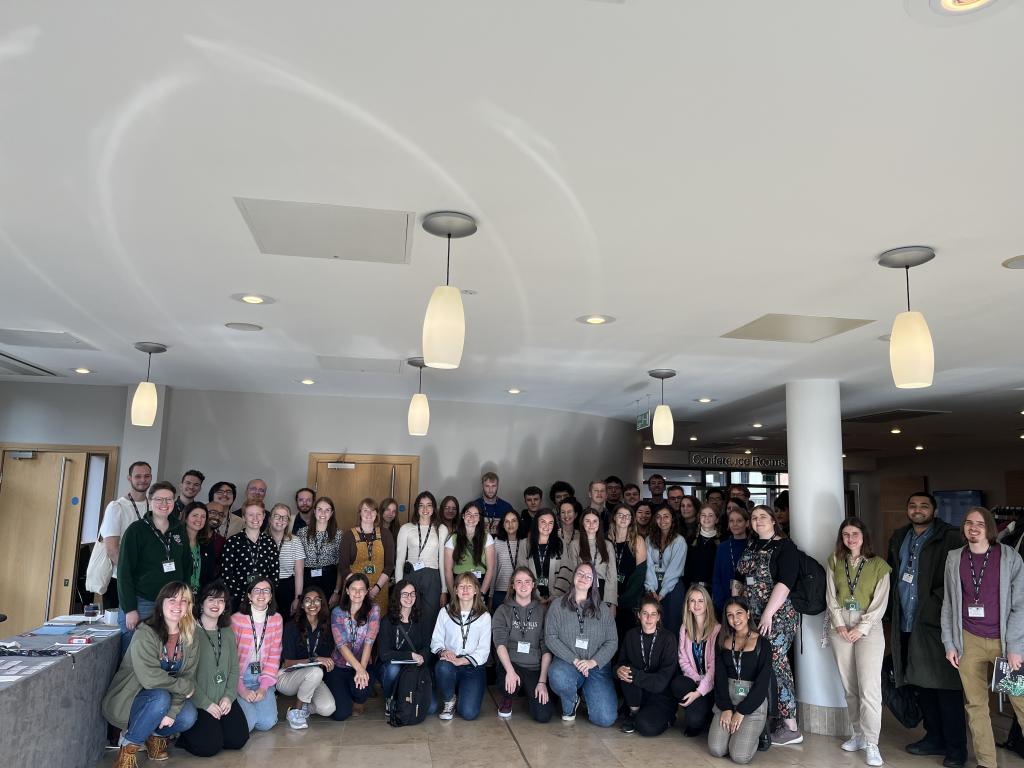
On this page you can find information about the EASTBIO 2023 student cohort and their PhD projects, organised by Thematic Area.
Clean Growth
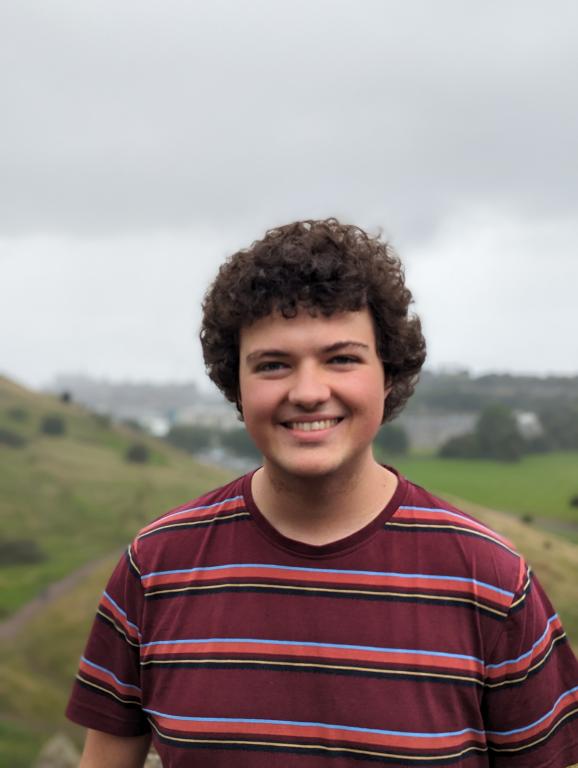 Michael Astbury
Michael Astbury
University of Edinburgh
Project Title: Developing the highly productive cyanobacterium Synechococcus sp. 11901 as a commercial biomanufacturing platform.
Primary Supervisor: Prof Alistair McCormick
Project Summary: Cyanobacteria are capable of photoautotrophic growth in batch reactors using sunlight and CO₂ from flue gas without taking up much land. This makes them attractive for use in carbon capture and the production of high value compounds. Industrial applications have been limited so far due to slow growth compared to unicellular heterotrophs, but with the discovery of fast growing strains such as Synechococcus sp. 11901 this could soon change. My project focusses on understanding why this strain grows so quickly and developing it as a platform to produce high value compounds. I am working alongside CyanoCapture Ltd to scale up from growing small volume cultures in the lab to larger volumes growing in a photobioreactor.
Personal Note: Hi, I'm Mikey from North Wales. I completed my BA in Natural Sciences at the University of Cambridge in 2023, with a focus on Plant Sciences. Having previously worked on a gene expression system in the chloroplast genome in the green alga Chlamydomonas reinhardtii, I became really interested in phototrophic microbes and the roles they could play in green biotechnology. I enjoy cooking, hiking, reading and playing video games.
Marta Chronowska
University of Edinburgh
Project Title: Development of data-driven methods for de novo design of novel enzymes.
Primary Supervisor: Dr Christopher Wood
Project Summary: Despite recent advances in protein structure prediction, adding complex reactivity to de novo designs of novel enzymes remains a challenge. One method to solve this could be to base the designs on a generalised scaffold and customisable cofactors, depending on the desired functionality. This project aims to improve reliability and accessibility of computational tools for protein design in general, and to develop a robust method for incorporation of cofactors into de novo protein designs. Research will focus on the flavoprotein family of oxidising enzymes, a number of which is light-activated. The goal is to understand what causes only some of them to be light-activated. Deepening the understanding of the relationship between protein folding and photocatalysis functionality in native proteins will allow then to implement this in novel enzyme designs. If realised, this method can have a transformational impact on the field of biocatalysis.
Personal Note: I left my home in Poland in 2016 to complete A-levels at the Sutton Valence School in Kent thanks to a scholarship from the HMC Projects in Central and Eastern Europe. From 2018 to 2023 I studied towards an integrated Master’s degree in Chemistry at the University of Edinburgh. I worked on my final year project at the Nagoya University in Japan, exploring use of lasers to control chemical reactions. I am now continuing my studies in Edinburgh, pursuing a PhD in collaboration between the Wells Wood lab and the Jarvis Group, thanks to the EASTBIO DTP funding. My interests include arts and crafts, such as violin, sewing, embroidery; sports such as jiu jitsu, swimming, running; being out in the nature, camping and sailing, as well as staying at home with a book, a game, or a movie.
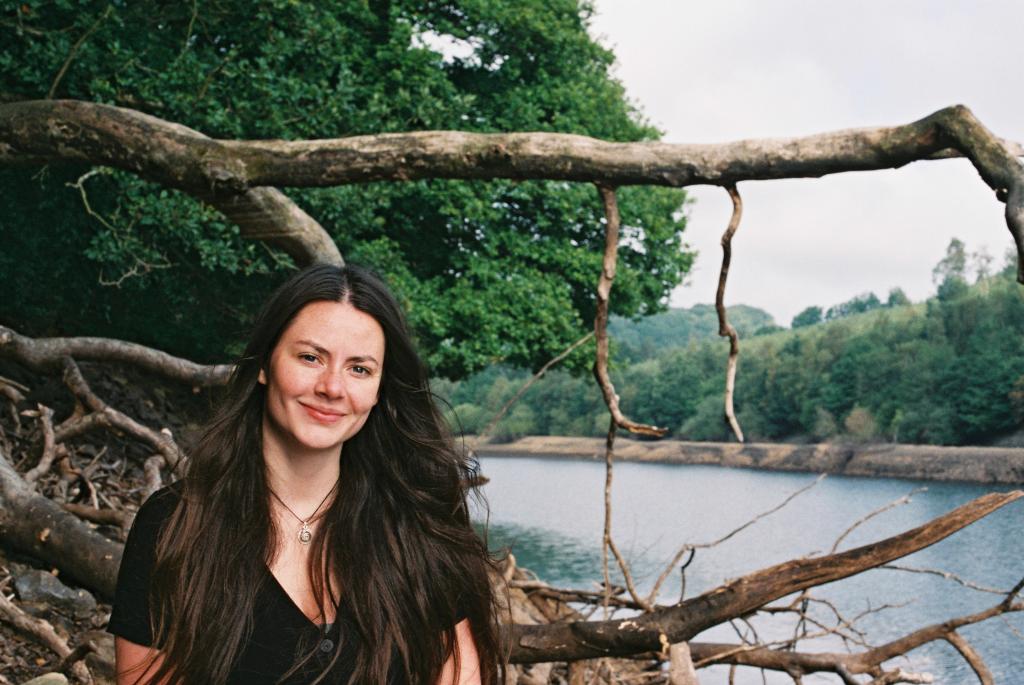 Isolde Marsland
Isolde Marsland
University of Edinburgh
Project Title: Using Mn-Co containing compounds formed through biological processes as precursors for development of electrode materials for energy storage applications.
Primary Supervisor: Dr Caroline Kirk
Project Summary: My EASTBIO project surrounds the use of microbial processes as a novel route to produce manganese and cobalt phases. The properties of these will be characterised and optimised to enable regeneration into new energy storage materials such as Na- or Li-batteries, and supercapacitors. The main focus of the project will be ensuring that the regenerated metals can be up-cycled into new high-performance materials, generating a completely circular recycling process.
Personal Note: I completed an MChem in Chemistry from the University of York, during which I completed a year in industry focusing on the development of novel sustainable materials, which spurred my interest in materials science. After graduating, I moved to Edinburgh to peruse a career in the life science industry, developing analytical methods to carry out safety assessments of agrochemicals by determining their metabolism. I hope that this EASTBIO PhD project will marry my life science experience as well as my interest in materials chemistry. Outside of the lab I enjoy playing lots of sport, such as swimming (both wild and pool), climbing and tag-rugby.. just to name a few!!
 Maria Juliana Rodriguez Cubillos
Maria Juliana Rodriguez Cubillos
University of Edinburgh
Project Title: Mining for the best side of bioscience data, with machine learning.
Primary Supervisor: Prof Andrew Millar
Project Summary: This project first aims to understand current data descriptions in research data repositories, using text mining and machine learning, in particular named entity recognition in free-text descriptions. Based on this evidence, I will research the simplest ways to improve the description in future.
Personal Note: I am from Colombia. I had a bachelor in biology and a masters degree in computational biology. I worked as a research assistant before starting my PhD. I particularly enjoy indoor activities like painting, reading a book in a café, or go to the theatre and outdoor activities like walking in a park.
Arianna Schneier
University of Edinburgh
Project Title: Bioengineering novel platforms for one-pot plastic upcycling.
Primary Supervisor: Dr Joanna Sadler
Crops and Soil
Chak Lam Chan
University of Dundee
Project Title: Context is everything – how do plants organise receptor complexes to regulate growth, fight pathogens and mitigate environmental stress?
Primary Supervisor: Dr Piers Hemsley
Project Summary: I am currently working between the University of Dundee and the James Hutton Institute with Dr Piers Hemsley on a plant receptor kinase protein, FLS2. FLS2 is part of a plant’s innate immune system, able to recognise bacterial flagellin and subsequently induce downstream cell signalling, to defend the plant cells against the invading pathogenic bacteria. For my project, we are interested in isolating the FLS2 protein complex in the model plant, Arabidopsis thaliana, and determine how the protein and lipid components of the complex change when plants encounter a recognised pathogen. I will primarily use mass-spectrometry based proteomics and lipidomics for this work. This will enable us to identify potential proteins and lipids of interest, which we would further validate by in vivo studies, and these could lead us to a better understanding of how immunity in plants is driven at a molecular level.
Personal Note: I was previously a biochemistry undergraduate at the University of Leeds, working on a cancer fusion protein, EML4-ALK, for my master’s thesis. After that I worked as a scientist in the protein production department of a company for a few years, purifying proteins for clients developing new drugs. I enjoy reading (just about anything from science to current affairs), photography, cook and do walks during my free time.
Emily Fields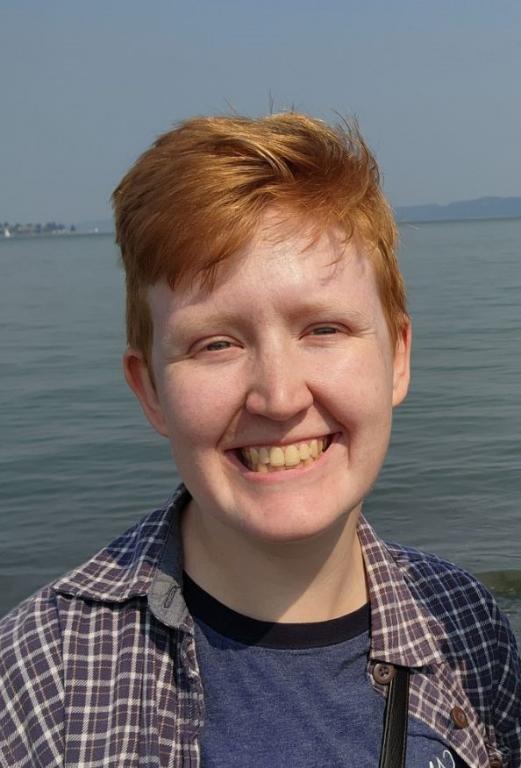
University of Dundee/James Hutton Institute
Project Title: Expanding the range of barley and potato gene editing tools
Primary Supervisors: Dr Craig Simpson & Dr Laurence Ducreux
Project Summary: My project is to improve the range of editing tools in potato and barley in order to engineer versions of these crops that are more climate resilient. There are several limitations with the current systems that slow down current efforts to create crops despite the urgent need for crop climate security. These include inefficient transformation, long growing periods and being limited to only certain varieties (for example the most easily transformed varieties are often more susceptible to pathogens, and often aren’t preferred by farmers). By working on alternate strategies, I hope to improve the editing process in these areas and decrease the trade-offs that are currently being balanced.
Personal Note: I am from the Pacific Northwest of the US, where I gained a love for the outdoors and science. Up until moving to Scotland, I have been working in gene therapy research to treat hemoglobinopathies such as sickle cell anemia. In the Kiem lab at the Fred Hutchinson Cancer Center in Seattle, WA I worked as a technician on implementing base editors in hematopoietic stem cells, and gene editing selection strategies using CAR-T cells. Prior to that I studied biology at Pacific Lutheran University in Tacoma, WA and was first introduced to food security as a worldwide scientific effort. Aside from being excited to combine these previous experiences into my current project, outside of the lab I enjoy hiking, swing dancing, and playing bass and mandolin.
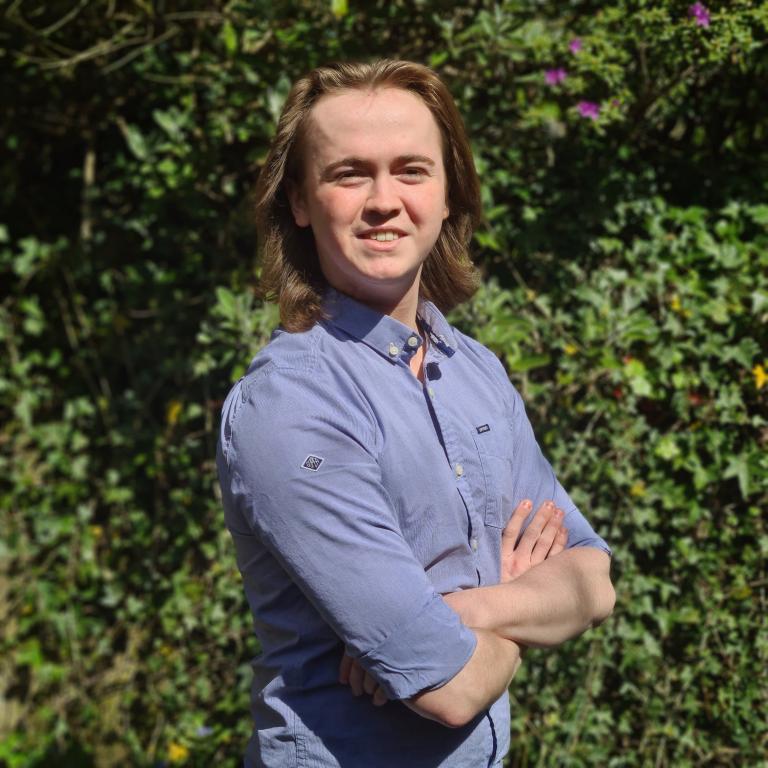 Douglas Freeburn
Douglas Freeburn
James Hutton Institute
Project Title: Accurate analysis of nanopore sequence data to drive crop improvement.
Primary Supervisor: Dr Runxuan Zhang
Project Summary: The aim of this interdisciplinary project is to develop computational methods to enhance the accuracy of Nanopore sequencing analysis and use these methods to increase our understanding of the plant genome, variation across genotypes, and transcript-specific expression.
Personal Note: Douglas graduated in 2023 with a first class MSci in Biological Sciences (Bioinformatics). His final year project investigated the role of auxin metabolism genes during plant thermomorphogenesis - development in response to increased temperatures. This project also identified novel transcription factors of these genes. His honours project involved studying the C2 protein domain, clarifying the role each residue plays in its function. He is an avid musician, playing primarily piano, guitar and saxophone, and also enjoys kayaking and hiking.
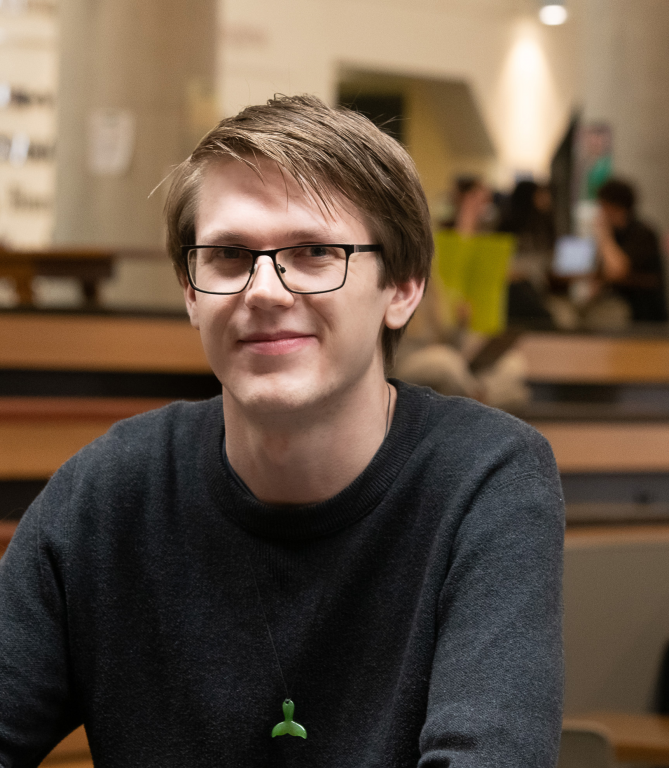 Max Hayhurst
Max Hayhurst
James Hutton Institute
Project Title: Keeping the leaves on: investigating disease threats to trees
Primary Supervisor: Dr Stephen Whisson
Project Summary: Phytophthora – Greek for “plant-destroyer” – is a genus of fungus-like microorganisms that cause devastating plant diseases worldwide. We know a lot about Phytophthora infections in crops, but species that cause tree diseases have gone largely unnoticed until the last decade. Generally, Phytophthora species secrete proteins called effectors to help colonise the host plant and subdue its immune system. However, the repertoire and roles of effectors involved in tree infection is largely unknown. My PhD project is focused on a subset of Phytophthora species that threaten European beech trees (Fagus sylvatica). The key aims are to identify effectors shared among beech-pathogenic Phytophthora species, where in the plant they act, and what their functions are.
Personal Note: Max hails from Wellington, New Zealand’s capital city. There, he completed his Bachelor of Science and Master of Science degrees at Victoria University of Wellington. Max’s first taste of research came in his second year of university, where he took part in the 2019 International Genetically Engineered Machine (iGEM) competition along with other undergraduate students. The Wellington team attempted to develop a carbon-neutral fuel cell that could generate electricity using enzymes and glycerol. Since then, Max has been involved in several projects with Dr. Monica Gerth in Wellington – encompassing chemotaxis, transformation, and CRISPR-Cas genome editing in the oomycete pathogen Phytophthora agathidicida. Max arrived in Dundee to start his PhD in September 2023, and has been enjoying the history, landscapes, and people of Scotland. Outside of work/study, he enjoys running, hiking, board/video games, pub quizzes, and sampling craft beers.
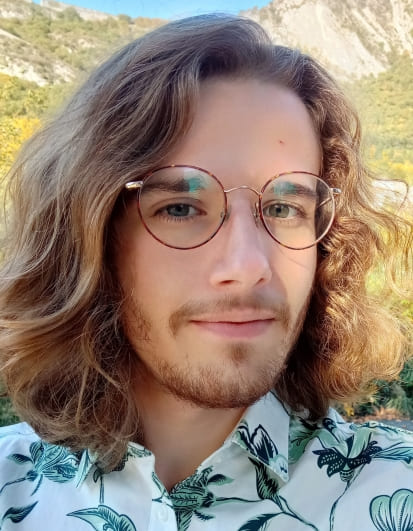 Emilien Krempf
Emilien Krempf
University of Edinburgh
Project Title: Dynamic ubiquitin signalling coordinates transcriptional reprogramming in plant immunity.
Primary Supervisor: Prof Steven Spoel
Project Summary: Plants do not have an immune system with cells specialized like mammals, each cell and organ must depend on a built-in response to locally respond to the threat. However, the stressed tissues can send signals to the rest of the organism to reprogram their metabolism towards defence mechanisms. This process called “Systematic acquired resistance” (SAR) is believed to happen mainly through the salicylic acid hormone. My host team recently discovered ubiquitin (or deubiquitination) post-translational modification of histone tails in immune-activated Arabidopsis thaliana in infection assays. The effect of such modifications of histone in plants has yet to be well characterized. Therefore, my PhD project would focus on defining the ubiquitin landscape of histone modifications, the actors at play that interact with these modifications and their role in reprogramming the immune genes. The potential application of the project would be to artificially control the induction of SAR to create more resilient crops.
Personal Note: After my bachelor's in fundamentals physics, I decided to get a glimpse of its application in a biology-related field through an internship in a Soft Matter lab. Thanks to this experience, I realized that I wish to become an experimentalist studying biological phenomena. I had the opportunity to join a program that allowed me to be part of a research project on a part-time basis on top of my classes. I worked on artificially designed mRNA folding to create synthetic riboswitches in bacteria. That is when my fascination for epigenetics started; which I then translated to my master’s thesis about a tool to remove methylation post-translation modification of histones in Arabidopsis thaliana. A personal goal of mine is that my research would help in the ecological transition towards more sustainable agriculture. In my off-time, I am an avid hiker and I recently got into macro photography!
Michael Simmonds
University of Aberdeen
Project Title: Optimising invasive species control to reduce risk of zoonotic disease and agricultural loss.
Primary Supervisor: Dr Thomas Bodey
Health
Rebecca Bryce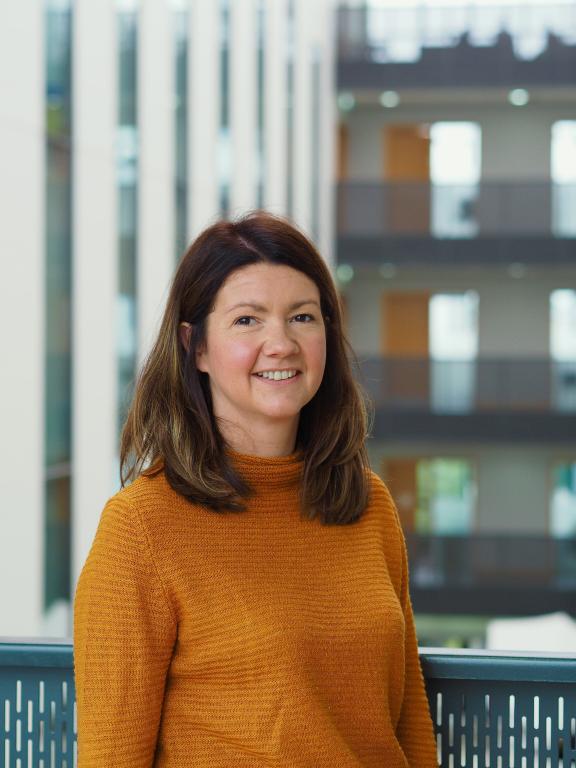
University of Dundee
Project Title: Unravelling key cellular machinery for spliceosome regulation
Primary Supervisor: Dr Chiara Maniaci
Project Summary: Novel "UBL-fusion" protein SDE2 is known to cleave to allow spliceosome complex formation. By characterisation of SDE2, I aim to illuminate spliceosome regulation and to generate a tool for the characterisation of other UBL-fusion proteins, using SDE2 as a protein model.
Personal Note: I'm a "home" student, commuting to Dundee from Stonehaven where I live with my husband and 3 children. I have a BSc Hons in Applied Marine Biology from Heriot-Watt University. I spent several years training and working as a Pharmacy Technician, raising children and teaching English in France, before returning to academia to undertake an MSc in Biomedical and Molecular Sciences at the University of Dundee, which I completed in 2023. My personal interests include trail and mountain running, skiing, youth work and French.
Angus Comerford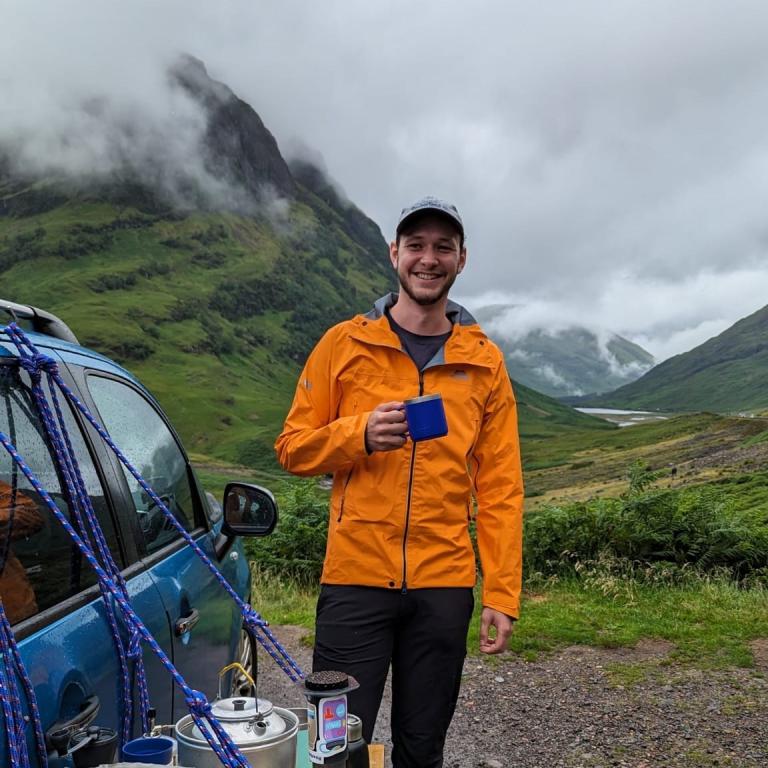
University of Edinburgh
Project Title: Optimisation of Allogeneic GMP Grade Mesenchymal Stromal Cells To Promote The Long Term Engraftment And Function Of Islets
Primary Supervisor: Prof Shareen Forbes
Project Summary: Islets are clusters of cells within the pancreas which contain insulin producing cells. Transplantation of these cells into the liver of a patient with Type 1 diabetes, who by definition cannot produce insulin, is an established clinical intervention in those with poorly controlled diabetes. However, the treatment falls short of a cure and most patients never achieve insulin independence and insulin production of the transplanted islets decreases over time. This project will focus on improving outcomes by transplantation of islets with specific cells called mesenchymal stromal cells (MSCs) in pre-clinical models. MSCs have immunomodulatory, anti-inflammatory and pro-regenerative properties. The main aim of the project is to develop an “off-the-shelf”, allogeneic MSCs from banked tissue requiring no further matching of donor to recipient.
Personal Note: Originally from England but have been in Edinburgh for two years now after completing a Masters by Research in Regenerative Medicine. I'm interested in transplant biology and how the immune system is involved in graft success. Outside of the lab I'm typically in a coffee shop, pub or running over a mountain.
Louise Cope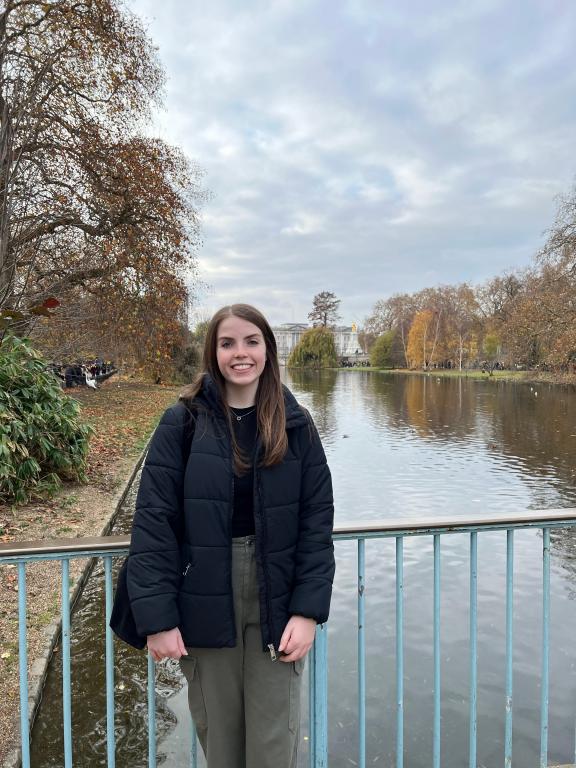
University of Aberdeen
Project Title: Phosphodiesterase 1 signalosomes: the utility of peptide disruptors for pulmonary arterial hypertension
Primary Supervisor: Dr Fiona Murray
Project Summary: Phosphodiesterase(PDE)-protein complexes, named signalosomes, have be implicated in cancer, heart failure and cognitive decline. Our project aims to advance the understanding of a new phosphodiesterase signalosome, PDE1C/prostacyclin receptor (IP), through determining its function, subcellular location, and protein partners. We intend to develop novel peptide disruptors to dissect the cellular role of PDE1C/IP, which we believe could have therapeutic utility for pulmonary arterial hypertension.
Personal Note: Hello, my name is Louise, and I am from Aberdeen! I recently graduated in the summer of 2023 from the University of Aberdeen with a BSc in Biomedical Sciences with Physiology. I am extremely excited to start my PhD with Dr Fiona Murray, having previously undertaken a summer internship in her lab, focusing on repurposing a select phosphodiesterase inhibitor as a potential treatment for pulmonary arterial hypertension. Outside of academia, I spend my time teaching Highland Dancing to younger children whilst also attending classes myself. In my spare time I also enjoy walking and baking.
Emily Cope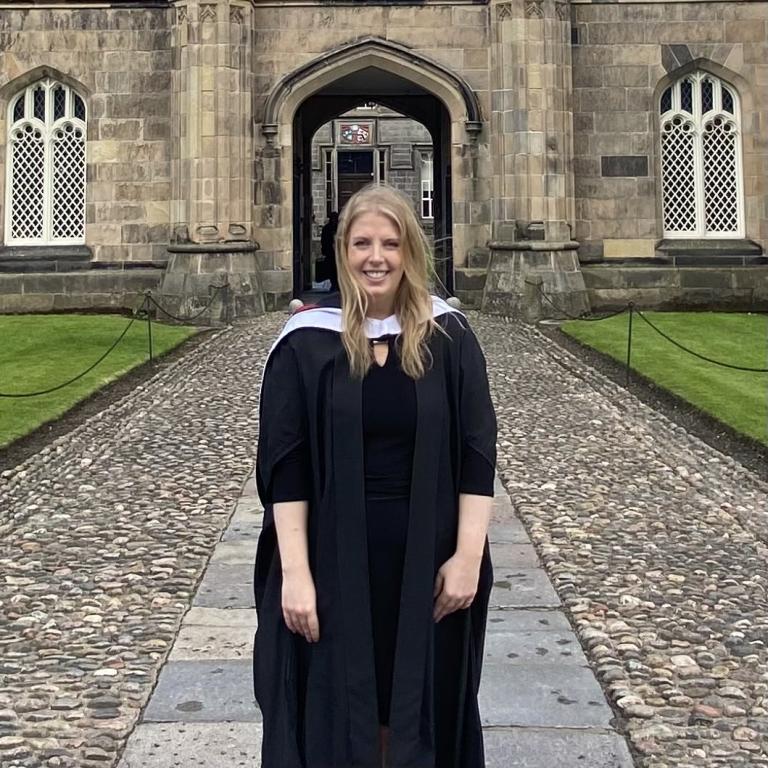
University of Aberdeen
Project Title: Defining the molecular mechanisms underpinning inflammatory regulation of the vasculature
Primary Supervisor: Dr Dawn Thompson
Project Summary: The resolution of inflammation, previously thought to be a passive process, is an active mechanism, crucial for the clearance of inflammatory debris and return to tissue homeostasis. A key driver of this shift between inflammatory and resolution phases is formyl peptide receptor 2 (FPR2), a GPCR with diverse agonists. Given this role as an inflammatory “switch”, FPR2 has been identified as an attractive therapeutic target for the chronic inflammation associated with conditions like atherosclerosis. We hope to further elucidate its signalling on both a molecular level and as a druggable target in vivo, which may yield progress towards novel treatments for chronic inflammatory conditions within the vasculature and beyond.
Personal Note: Hello, I’m Emily and I am excited to be starting my PhD at the University of Aberdeen under the supervision of Dr Thompson and Dr McNeilly. I completed my MSc by Research here earlier this year, in collaboration with the University of Dundee, so I am looking forward to continuing this collaboration and getting back to the lab! We will be investigating the regulation of inflammation in the vascular system, particularly focussing on the formyl peptide receptor family of GPCRs which are a key focus of the branch of “resolution pharmacology”. Resolution pharmacology hopes to exploit the body’s innate resolving capabilities, without the immune risk of dampening the inflammatory response outright, which is a very exciting area to be working in. Outside of the lab, I enjoy trying out new recipes and walking around the beautiful parks and coastline we have here in Aberdeen.
Barbara De Queiroz Monteiro Black
University of Edinburgh
Project Title: Sex differences in immune senescence and responses to geroprotective drug treatments
Primary Supervisor: Dr Jennifer Regan
Richard Edel
University of St Andrews
Project Title: Advanced fluorescence spectroscopy to unravel functional oligomerization of a newly discovered Ca2+ channel and its role in heart failure
Primary Supervisor: Dr Samantha Pitt
Project Summary: Endoplasmic reticulum (ER) homeostasis is becoming an increasingly interesting target in heart failure, since accumulation of misfolded or unfolded proteins can easily lead to ER stress, which in turn can play an important role in the development of cardiovascular diseases. Mitsugumin 23 (MG23), is a newly discovered endoplasmic/sarcoplasmic reticulum (ER/SR) transmembrane protein thought to be oligomeric in nature. We suggest that the dynamic oligomerization behaviour of MG23 controls its functional role. The aim of my PhD is to develop and apply spatial-temporal molecular brightness approaches using confocal microscopy to address the problem of the oligomerization dynamics of MG23 in pathophysiological conditions. Using a combination of molecular biology, electrophysiology, heart failure models and advanced microscopy techniques, I will visualize MG23 functional oligomerization in cardiac cells, unravel MG23 oligomerization in heart failure conditions, and correlate MG23 oligomerization to cardiac cell pathology, specifically apoptosis and fibrosis.
Personal Note: Hi! my name is Richard and I am from Leipzig, Germany. I have completed my BSc in Life Science at the University of Constance and moved afterwars to Berlin to study Molecular Medicine in a Master's program. During the COVID-19 pandemic I finshed the Master's Program with a thesis about "Preclinical in vitro analysis of a consensus DNA sequence for vaccination against Severe Acute Respiratory Syndrome Coronavirus 2 (SARS-CoV-2)". Through my Master's Pogram I have met one of my Supervisors Dr Paolo Annibale and decided to start my PhD a st Andrews with him and Samantha Pitt. Besides my research I love fencing and hiking.
Valentina Gaia
University of Edinburgh
Project Title: Using KMO inhibitors to improve islet transplantation for the treatment of type one diabetes
Primary Supervisor: Dr Andrew Sutherland
Peyton Goddard
University of Dundee
Project Title: A microbial glycan production platform for glycoscience research
Primary Supervisor: Dr Didier Ndeh
Project Summary: My project will combine a series of genetic manipulation approaches, bioinformatics and biochemical approaches to engineer and develop strains of bacteria found among the human gut microbiota (HGM). These engineered strains can be used to produce glyco-products of interest for other aspects of glycoscience research.
Personal Note: My hometown is Doncaster, South Yorkshire. I completed my undergraduate and master's at The University of Sheffield through the years 2017-2021 before relocating to Dundee in 2022. I worked as a laboratory technician at a biotech company prior to securing my place on the PhD program.
Louise Goossens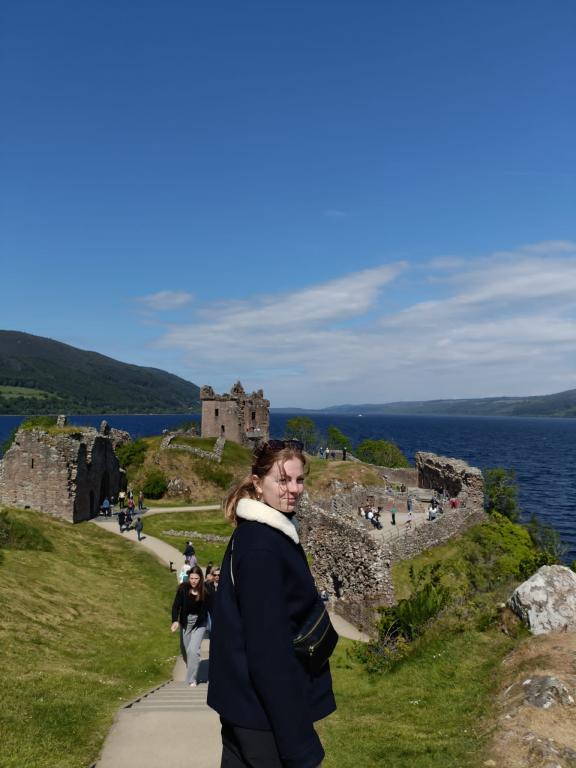
University of Edinburgh
Project Title: Investigating the bacterial response to antimicrobials in kidney organoids.
Primary Supervisor: Prof Jamie Davies
Project Summary: My project involves investigating how bacteria respond to antimicrobials in kidney organoids. Urinary tract infections (UTI) caused by bacteria are widespread. In fact, almost half of all catheterized patients develop UTIs, and one-third of healthy women experience a UTI before the age of 24. These infections can be severe and may cause kidney damage, potentially leading to sepsis. This highlights the pressing need for improved understanding and treatment of UTIs. E. coli is the primary cause of UTIs, and approximately 30% of cases are resistant to traditional treatments. My project therefore focuses on developing a clinically relevant model of bacterial infection in kidney organoids and following the bacterial and kidney cells' response to infection and treatment with antibiotics.
Personal Note: Hi, I am Louise! I obtained a BSc and MSc in Biochemistry and Biotechnology at KU Leuven (Belgium). My interest in microbiology and molecular biology can be pinned back on the fact that I strongly believe that we can get much more out of individual cells. Before we look at organisms as a whole, we have to start with the understanding of single cells. I am convinced that many solutions to modern-day problems can be found in the smallest (parts of) organisms. I have always been drawn to the practical application of science, using it to tackle health issues and solve problems. I am thrilled to be combining my interests in my PhD project. In my spare time, I like to read, hike, cycle or go to the pub with friends.
Elena Hartmann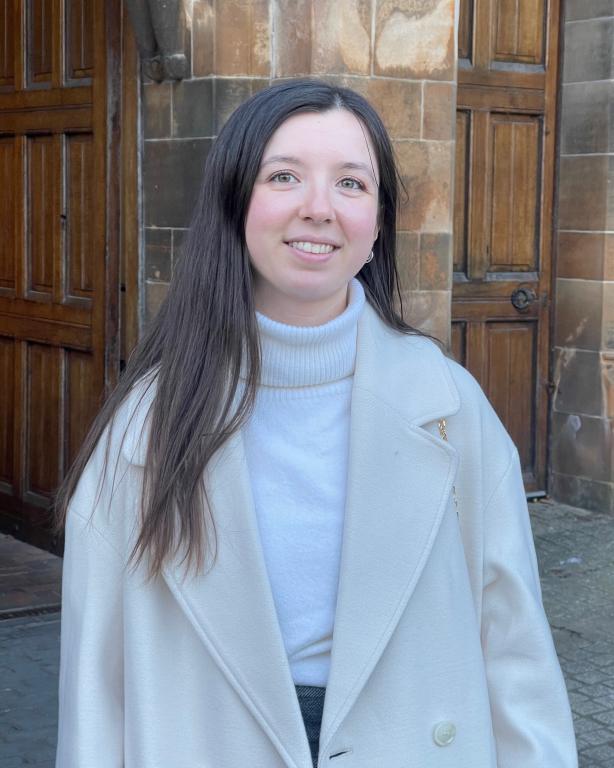
University of Edinburgh
Project Title: Host-parasite interactions in chronic infection
Primary Supervisor: Dr Joanna Young
Jed Hawes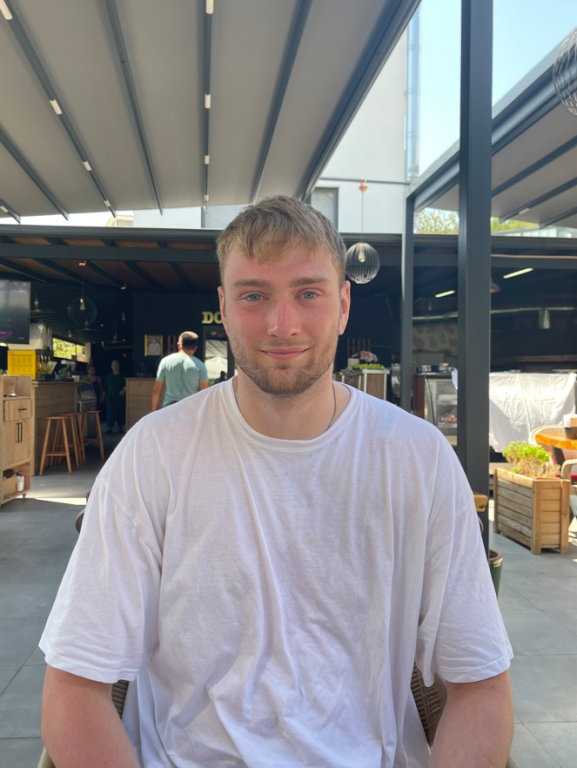
University of Dundee
Project Title: Targeting epigenetics for antimalarial development
Primary Supervisor: Dr Marcus Lee
Project Summary: Epigenetic regulation controls gene expression in eukaryotes. In Plasmodium, the malaria parasite, chromatin remodelling plays diverse roles in pathogenicity, such as activating invasion-related genes, suppressing cytoadherence receptors for immune evasion, and determining transmissible sexual forms. However, our understanding of specific chromatin modifiers in gene regulation during the parasite's life cycle remains incomplete. Chemical inhibitors targeting key epigenetic factors offer valuable tools for studying parasite biology and drug development. This project combines CRISPR-based genome editing and chemical biology to investigate epigenetic code "readers, writers, and erasers." We will create conditional knock-out lines of epigenetic regulators through CRISPR editing and use antimalarial epi-probes to induce resistance and identify their targets. These resources will help assess epigenetic regulation's impact on parasite lifecycle transitions and the expression of multi-gene families involved in immune evasion.
Personal Note: I completed a BSc in Biological Sciences from the University of Leicester where for my third year project I studied the regulatory mechanism behind the HULC writer complex. I then extended my interest in chromatin dynamics and epigenetic regulators to the University of Birmingham where I have graduated from the MRes Cancer sciences course. During this project I focused on exploring the effect of inhibitors of the H3S10p kinases MSK1/2 on BPTF recruitment and expression of BPTF target genes in melanoma. Now I am at the University of Dundee where I aim to target epigenetics for antimalarial development. I play rugby and enjoy watching football and F1.
Ananya Hoque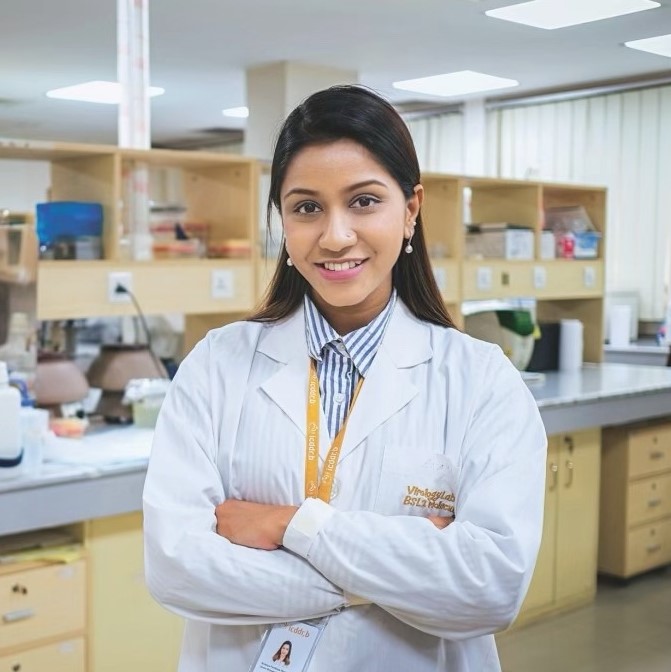
University of Edinburgh
Project Title: Discovering patterns in the genome of RNA viruses that drive evolution and regulate replication
Primary Supervisor: Dr Eleanor Gaunt
Personal Note: Hello, I am Ananya! I am a Bangladeshi researcher with multidisciplinary experiences in microbial, molecular and clinical sciences. Before starting my PhD at the Roslin Institute, I worked as a Research Assistant in Vector Biology at the Liverpool School of Tropical Medicine. My interest in virology stems from my time working as a Research Officer at the International Centre for Diarrhoeal Disease Research, Bangladesh (icddr,b) where I investigated the molecular and phylogenetic properties of clinically important RNA viruses like Influenza, SARS-CoV-2, Nipah virus, RSV and others. I also worked as an essential frontline researcher at icddr,b during the pandemic in Bangladesh and trained healthcare professionals in RT-qPCR mediated SARS-CoV-2 detection and variant genome sequencing using BSL2+ practices. Previously, I completed my MRes in Biological Sciences from the University of Manchester, UK and my BSc in Microbiology from North South University, Bangladesh.
Tom Leah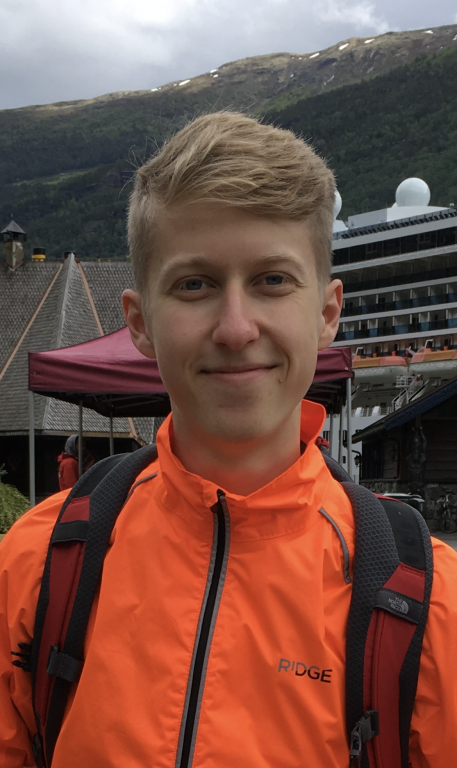
University of Edinburgh
Project Title: Investigation of TGF-ß2 in healthy brain ageing
Primary Supervisor: Dr Jing Qiu
Project Summary: Brain ageing is associated with synapse loss, cognitive decline, and heightened neuroinflammation. However, this occurs on a spectrum: healthy ageing and cognitive stability is associated with less neuroinflammation, a state related in part to the properties of microglia. Prior work from my lab identified a signalling factor, TGF-ß2, released from neurons and astrocytes to promote expression of microglial “homeostatic” transcriptional signature genes which are normally lost in the ageing brain. The roles and function of TGF-ß2 are not well characterised in the ageing brain; my project will aim investigate this through a variety of in-vivo and in vitro approaches.
Personal Note: My name is Tom and I will be studying my PhD at the University of Edinburgh with Dr Jing Qiu. I am originally from northwest England and studied a 4-year Integrated Masters degree in Biology at the University of York. During my final year I particularly enjoyed working in a research lab, and wanted to get some more hands-on experience. After graduating I started a research technician position at the Sheffield Institute for Translational Neuroscience where I became very interested in brain research. After a few years I moved to Edinburgh for personal reasons and continued working in neuroscience research. I took up a research technician position with Dr Jing Qiu working on microglia signalling with a plan to progress into a PhD - I am excited to start my project and meet the rest of my cohort! Outside of work I enjoy playing tennis and competitive chess!
Maria Roxana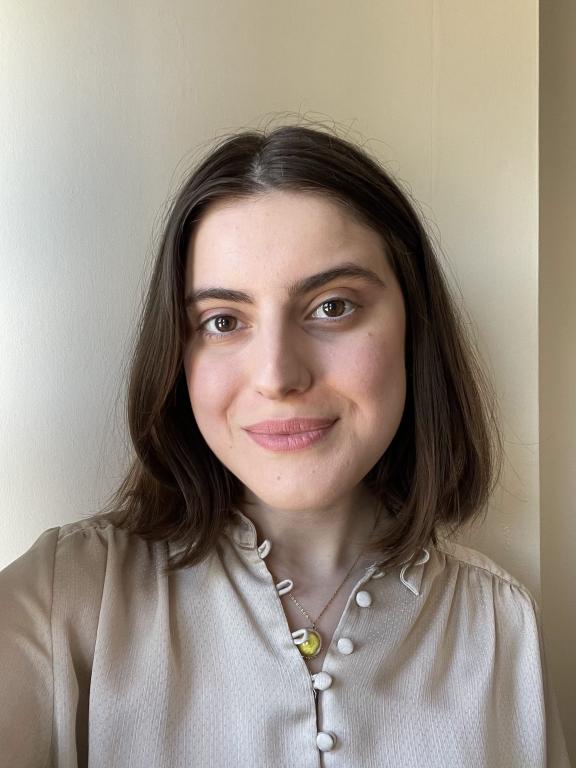
University of Aberdeen
Project Title: Muscles, motor control & mitochondrial superabundance – what’s the connection?
Primary Supervisor: Dr Guy Bewick
Project Summary: This PhD proposal focuses on investigating the link between mitochondrial dysfunction and sensory ataxia, a condition characterized by disrupted motor control and frequently seen in inherited metabolic diseases with faulty energy production due to mitochondrial defects. The proposal aims to address why sensory nerve terminals, responsible for reporting limb movement, have an unusually high density of mitochondria. The study involves using various techniques such as electrophysiology, pharmacology, biochemistry, immunohistochemistry, and advanced imaging methods to explore the structure and function of mitochondria in these nerve terminals. Mouse models with mitochondrial DNA mutations will be used to study functional and structural differences, and the research will take place in Aberdeen and Newcastle, utilizing their expertise and resources in mitochondrial phenotyping. Ultimately, the goal is to unravel the functional significance of this high mitochondrial density in movement-sensing nerve terminals and its potential role in sensory ataxia.
Personal Note: Hello, I'm Maria, and I've recently completed an integrated master's program in Biochemistry with an industrial placement at the University of Aberdeen. As part of my degree, I had the incredible opportunity to spend a year in Germany at the University Clinic of Tübingen. Currently, I'm fully immersed in a challenging Ph.D. program with a focus on unraveling the significance of mitochondria superabundance in mechanosensory nerve terminals, investigating their role and function, and understanding what their presence means for muscle function. In my free time, I enjoy reading Agatha Christie's books. I also find solace in outdoor walks, where I can appreciate the beauty of nature, and I'm a regular at the gym, as I like staying active.
Meg Watt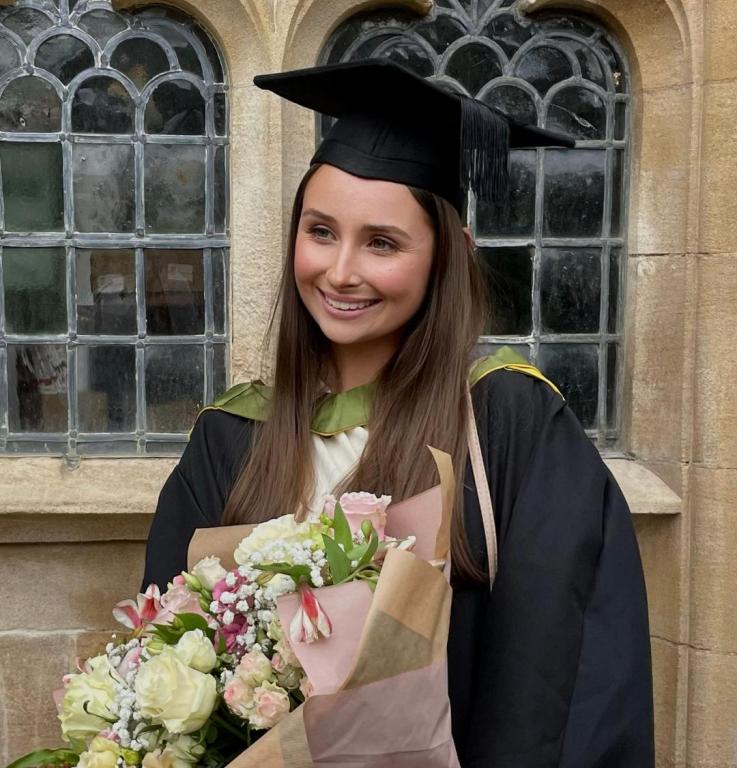
University of Edinburgh
Project Title: Age-related neurodegeneration and dementia: comparison of neuropathological changes and genetic predisposition in diverse species
Primary Supervisor: Dr Fiona Houston
Project Summary: Alzheimer’s disease (AD) is one of the most common forms of dementia, in which the underlying cause is thought to be misfolding and accumulation of amyloid-β (Aβ) and hyperphosphorylated tau (ptau). Cats and sheep are some of the only species known to accumulate both Aβ and ptau in the brains of aged individuals. The project will perform an in-depth comparison of age-related neuropathological processes and potential predisposing genetic factors in cats and sheep, using a variety of approaches including histopathology, protein biochemistry and DNA sequencing. We have access to unique archives of brains from cats and sheep of different age groups across their entire lifespan. The project will result in enhanced understanding of fundamental mechanisms of brain senescence across species, and provide information on pathways to target for development of novel therapeutics in both humans and domesticated cats.
Personal Note: I am originally from Kent in a town called Sandgate. I have just completed my bachelor's degree in Biochemistry at the University of Bath. During industrial placement year at the pharmaceutical company MSD, I carried out a research project on potential strategies to treat neurodegeneration and realised my passion for research in the area of neuroscience. Living by the beach means my interests are paddle-boarding, kayaking and I love to go on a hike! I also love going to the gym and exploring new restaurants.
Livestock and Aquaculture
Alice Catanzaro
University of Edinburgh
Project Title: Development and characterisation of multi-cellular lung organoids for use in Bovine TB research
Primary Supervisor: Dr Jo Stevens
James Fennell
University of Stirling
Project Title: Effect of mussel farming practices on genetics pool and shell material properties
Primary Supervisor: Dr Susan Fitzer
Project Summary: Currently the Scottish rope grown mussel industry relies on wild-caught seed, recent studies have indicated that location and farming environment significantly influence spat recruitment and production yield. The high gene flow of mussel populations combined local environmental features and geophysical limits to spat dispersal make it crucial to investigate the interaction between genetics and the environment. This research aims to identify the factors that result in variations in mussel productivity, including shell thickness, hardness, and fracture toughness, in response to different growing conditions and recruited spat genetics. The objectives include evaluating phenotypic changes in response to different environments, comparing various mussel species and hybrids, assessing the differences of wild versus farmed mussels in the same location and investigating farming practices such as grading. The findings from this research will inform more effective and sustainable mussel farming practices, potentially increasing yield and reducing waste in the industry.
Louisa Kosin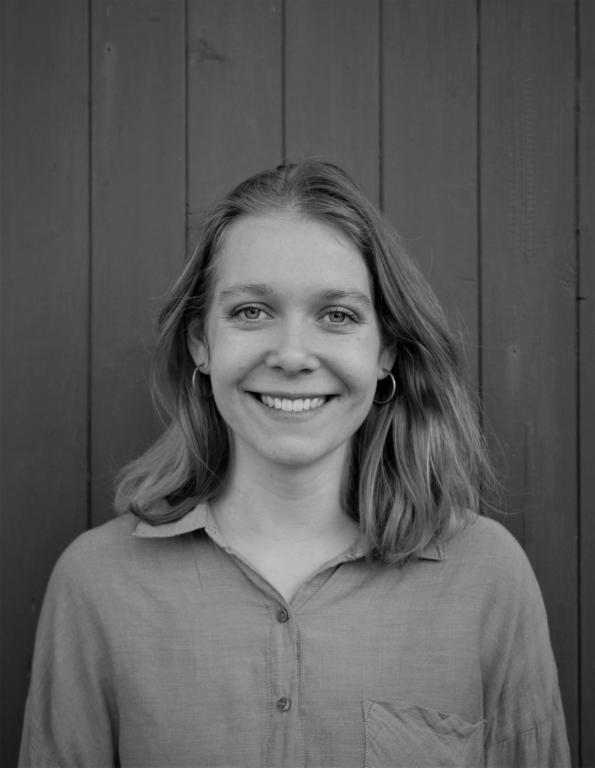
University of Edinburgh
Project Title: Understanding the mechanisms of photoreception in birds in relation to physiology, behaviour and welfare
Primary Supervisor: Dr Simone Meddle
Project Summary: This project will investigate the role light plays, and the mechanism by which light exposure, during artificial incubation of bird eggs effects chick welfare and behaviour post-hatch. Our understanding of how light exposure acts during incubation, and how it can be optimized, remains limited particularly in relation to post-hatch performance. Recent work has shown that extra-retinal photoreceptors (non-visual opsins) represent a widespread and evolutionarily ancient form of light detection that could mediate development. The project’s primary objective is to test the role of non-visual opsins during incubation in relation to chick physiology and behaviour including circadian rhythms. By using gene edited neuronal opsin knockout chickens, we aim to elucidate whether extra retinal photoreceptors mediate the positive effects of light exposure during incubation. These novel insights will inform commercial egg incubation and improve welfare, but also provide a more detailed appreciation of how nocturnal light exposure may impact wild bird populations.
Personal Note: Hey there, I´m Louisa! I am originally from Berlin, Germany where I also finished my BSc and MSc degree in Agricultural Sciences. Ever since I started my studies, my main interest was focused on animal behaviour and animal welfare. For my BSc project I was working with weaned piglets, teaching them to walk on a treadmill to investigate their learning process and motivation. For my MSc project I studied the decision-making process in rats, analyzing self-conducted video material of rats living in an experimental set up which provided them with various resources. Before moving to Scotland I have worked as a scientific officer in the Federal Office of Consumer Protection and Food Safety in the department of animal feed for just over a year. In my spare time I enjoy spending time with my friends and family, good food and coffee and riding my horse back home in Germany.
Sajan McCorkindale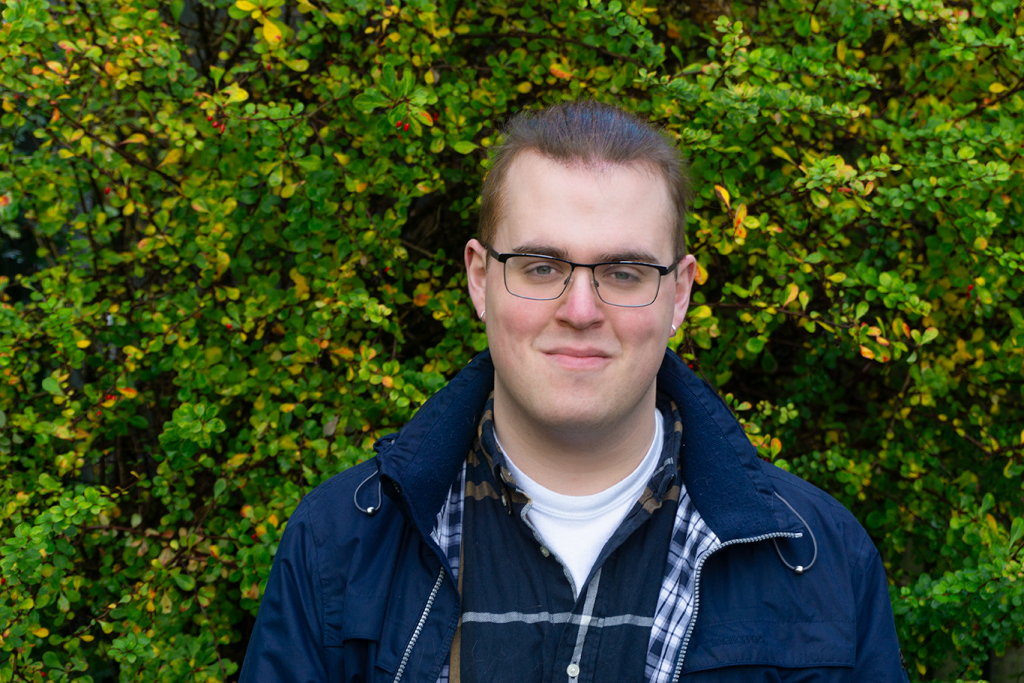
University of Aberdeen
Project Title: Understanding the epidemiology of pathogen transmission across the human-wildlife-livestock interface using environmental surveillance and metagenomics
Primary Supervisor: Dr Mark Moseley
Project Summary: My work will aim to categorise the diversity of potentially pathogenic Leptospira strains from environmental and clinical samples using culture independent methods of DNA sequencing as well as tailoring existing assays to improve leptospirosis diagnosis.
Personal Note: Prior to starting my PhD, I graduated with a BSc (Hons) in Zoology from the University of Aberdeen, before going on to complete a Masters in Public Health.
Rose Parsa
University of Edinburgh
Project Title: Targeting surface M-like proteins of pathogenic streptococci to combat AMR
Primary Supervisor: Dr Nicola Lynskey
Project Summary: My project will be studying the surface proteins of Streptococcus uberis, a bacterial agent responsible for causing the clinically- and economically-important disease of bovine mastitis. This inflammation of the mammary gland leads to reduced milk production, poor welfare, and is often treated using antibiotics. However, due to the concerning global emergence of antimicrobial resistance in streptococcal species, the development of novel therapeutics is necessary. Bacterial surface proteins are often responsible for preventing detection by immune cells and attaching to host tissue. Therefore, determining their structure and function can further our understanding of their role as virulence factors of S. uberis and their potential as vaccine targets can also be explored. This knowledge can perhaps then be used more widely for other pathogenic streptococcal diseases of medical or veterinary concern.
Personal Note: Hi, I'm Rose! I'm originally from Canada but studied my BSc in Animal Behaviour and Welfare and MSc Bioveterinary Science by Research at the University of Lincoln. During this time, I developed an interest in infectious veterinary diseases and molecular microbiology, with my MSc thesis exploring parasites of wild British birds. I also had the opportunity to work as a Parasitology/Bacteriology technician at the Atlantic Veterinary College back home in Canada, which made me even more fascinated by the world of bacteria. In my spare time, I enjoy travelling, paddleboarding, dancing in ceilidhs, and hiking with my huskies!
Holly Payne
University of Edinburgh/SRUC
Project Title: Nutritional strategies to stimulate endogenous antimicrobial peptides in poultry: A promising alternative to antibiotics with a smart solution for safe and sustainable poultry farming.
Primary Supervisor: Dr Farina Khattak
Project Summary: Increasing antimicrobial resistance is a global concern for consumers, public health authorities, farmers and food standard agencies. Antimicrobial peptides (AMPs) are emerging as an effective non-antibiotic tool to combat infectious diseases in poultry. However, the prophylactic application of synthetic AMPs is limited due to their higher production cost and product stability issues. Nutritional manipulation to induce and regulate the expression of endogenous AMPs can be a smart solution to tackle the strategic challenge of producing sustainable, resilient and safe poultry.
Personal Note: I am from Edinburgh and graduated in August 2023 from SRUC and The University of Glasgow with a first class honours degree in Applied Animal Science. When I’m not spending time with friends and family I am a keen horse rider and love going for long walks in the pentlands.
Sujith Surendranath
University of St Andrews
Project Title: Genome-wide investigation of bovine respiratory virus infection and host defence
Primary Supervisor: Dr David John Hughes
Project Summary: Bovine respiratory disease (BRD) – commonly known as “shipping fever” - affects millions of feedlot calves every year and, in addition to causing significant animal welfare issues, is a major cause of economic loss throughout the world. BRD is caused by a complex of pathogens including infection with respiratory viruses such as bovine respiratory syncytial virus (BRSV), bovine parainfluenza virus 3 (BPIV3), bovine herpes virus 1 (BoHV1). These pathogens cause damage to cells of the respiratory tract that hinders pulmonary clearance leaving calves susceptible to secondary bacterial infections. Therefore, a better understanding of virus biology, particularly what host factors are key to successful infection is needed. Likewise, knowledge of how the host defence system attempts to limit their replication is required to better inform the development of new therapeutic approaches or how to develop more sustainable and resilient animals.
Kaia Waxenberg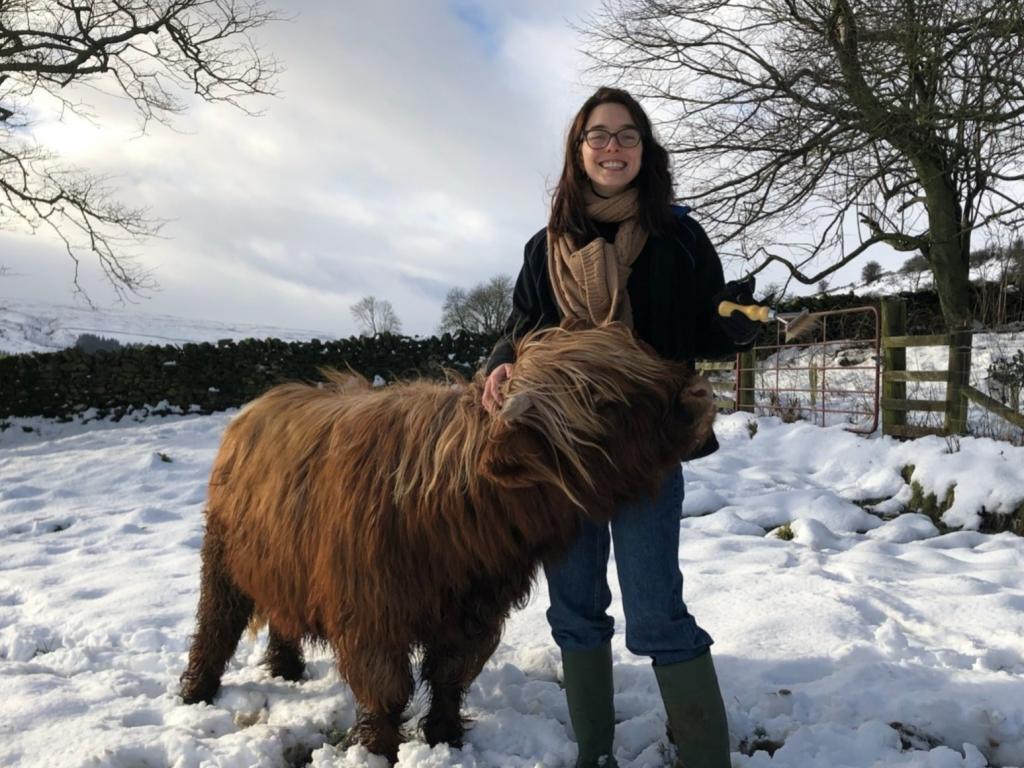
University of Edinburgh/SRUC
Project Title: Understanding micronutrient provision in a changing global food system
Primary Supervisor: Dr Vera Eory
Project Summary: Micronutrient deficiency, or 'hidden hunger,' affects as much as half of the world's population, with chronic shortages of four essential nutrients: iron, zinc, iodine, and vitamin A. Micronutrient deficiency directly leads to various adverse health effects, and hidden hunger has also been associated with rising obesity rates. Research suggests climate change may exacerbate these issues by diminishing the nutritional quality of crops and impacting their yields. Traditionally, food security research and policy have focused on ensuring adequate calorie supply. While these efforts have made significant progress in addressing undernutrition, they have not fully addressed the ongoing challenge of hidden hunger. There remains a significant research gap concerning micronutrient availability at the country level, taking trade and economics into account. My research will employ food system models to provide a comprehensive view of current global micronutrient supply, highlighting regional disparities, and identifying potential interventions to improve global health outcomes.
Personal Note: Hi - I’m Kaia! I was born and raised in New York City, but moved over to the UK to complete my BA in Natural Sciences at Cambridge. After that, I moved up to Edinburgh to complete my MSc in Environmental Protection and Management during the pandemic. I loved Scotland so much I’ve stayed here ever since! Over the last two years, I have been building the technology and science behind Agrecalc, a leading farm carbon calculator. Outside of research, I do my best to stay off the screen! You might find me in yoga and dance classes, taking van trips up to the highlands, hiking and camping, singing in a choir, playing guitar, and messing around with my sewing machine. Though I’m a city girl at heart, I love the outdoors and look forward to continuing to explore Scotland over the next few years!
Chumeng Zhu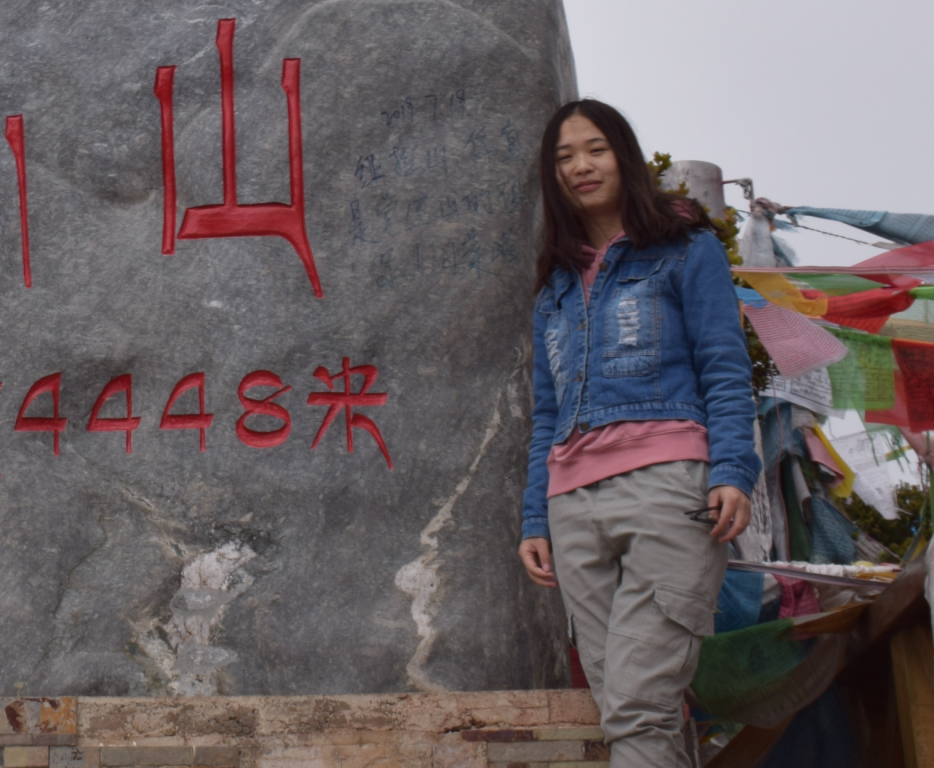
University of Edinburgh
Project Title: Using deep learning to reconstruct gene regulation in extinct species
Primary Supervisor: Dr James Prendergast
Project Summary: I have recently started my PhD project at Roslin Institute with Dr. James Prendergast and Dr. Dan Macqueen to employ deep learning techniques for predicting gene regulation in the ancestral genomes. In this way we can answer important evolutionary questions like how the genomes of these key livestock species have been shaped by domestication or whole genome duplications.
Personal Note: Hi everyone! I’m Chumeng Zhu, and my hometown is right along the Yangtze River in China. I graduated from South China Agricultural University with a bachelor’s degree in agriculture. After that, I completed my master’s research at the University of Chinese Academy of Sciences, with a focus on plant genomics and computational biology. I didn’t go straight to PhD research, instead, I worked at a hospital doing data analysis, and did an internship in the nature education industry. Besides my biological research, I’m always fascinated by wildlife in nature, including but not limited to plants, insects, birds. I hope to get to know them as much as possible in my short lifetime. Hobbies that I want to develop or pick up during my PhD: fitness, reading more novels and perhaps writing.
Rules of Life
Thomas Ballinger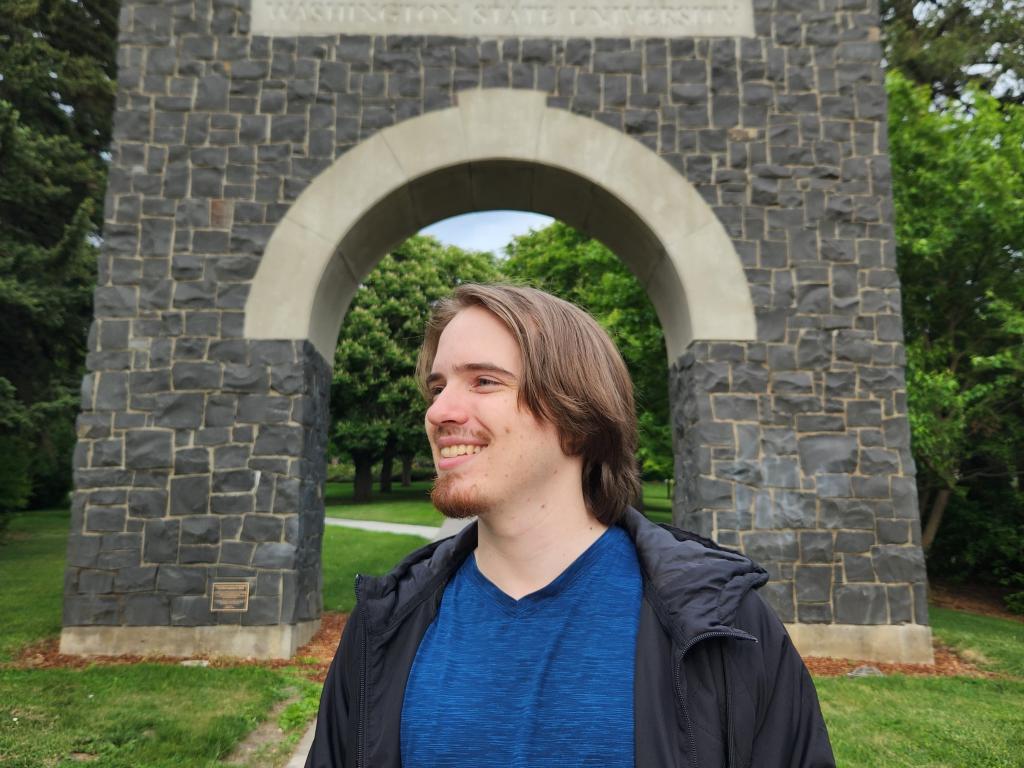
University of Edinburgh
Project Title: Investigating the Assembly of Bacterial Encapsulins for the Efficient Engineering of Nanoscale Bioreactors
Primary Supervisor: Dr David Clarke
Project Summary: Using structural mass spectrometry to investigate how bacterial encapsulins assemble around native and foreign cargo proteins to better understand these systems and engineer them for applications in therapeutics and industrial biosynthesis.
Personal Note: I'm from Reno, Nevada, USA and got a B.S. in Genetics and Cell Biology and a B.A. in Music from Washington State University before moving to Edinburgh to pursue my Ph.D. I like to play piano in my free time, and I'm excited to explore Scotland and hopefully some of Europe!
Flora Caldwell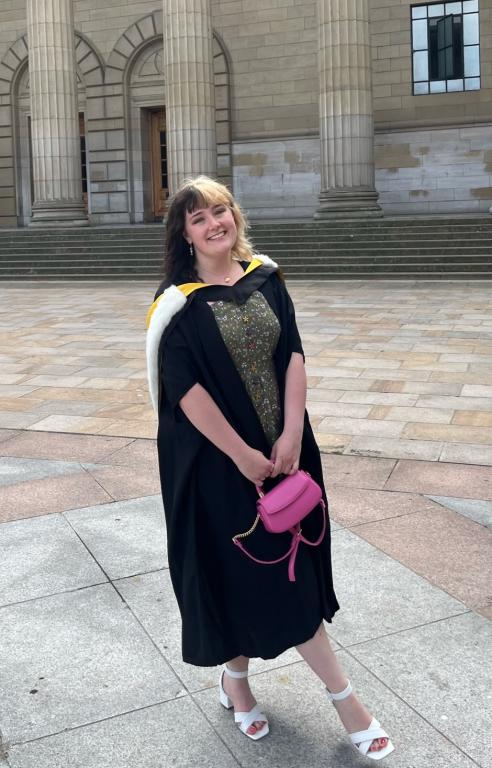
University of Edinburgh
Project Title: Investigation of conserved proteins that regulate transmission of the malaria parasite and Toxoplasma gondii
Primary Supervisor: Dr Joanne Thompson
Gabriella Crawford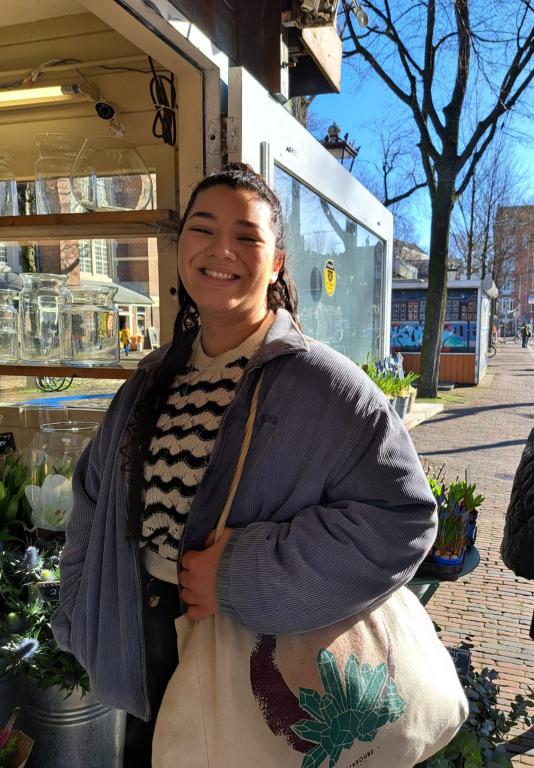
University of Aberdeen
Project Title: Development of a validated human IPSCs-derived microglia and brain organoid co-culture system
Primary Supervisor: Dr Eunchai Kang
Project Summary: During my PhD in the Kang-Berg lab, I will focus on the development of a brain organoid model system that recapitulates the developing human brain. This will include the co-culture of hIPSC-derived microglia and a variety of validation techniques. This project aims to reduce the use of animal models and develop a system that has better translational applications, such as studying human brain development, neurodevelopmental disorders, and neurotoxicity screening.
Personal Note: Hi, my name is Gaby! I graduated from the University of Alabama, USA, back in 2016 with a BSc in Biology. I had the incredible experience of being recruited to the University on a Rowing athletic scholarship, allowing me to train and compete at a high level while pursuing my interests in STEM. I then went on to complete a MSc in Stem Cell Technology and Regenerative Medicine from the University of Nottingham where I worked with Dr Sebastien Serres investigating the heterogeneity of human induced pluripotent stem cell (hiPSC) derived astrocytes, and how they respond under different culture conditions. More recently I gained industry experience by working as a research scientist at HistologiX, focused on Immunohistochemical and Immunofluorescent assay development for a range of clients. I am very excited for the next stage of my academic journey, working at the University of Aberdeen in the Kang-Berg lab.
Inés Jiménez Pulido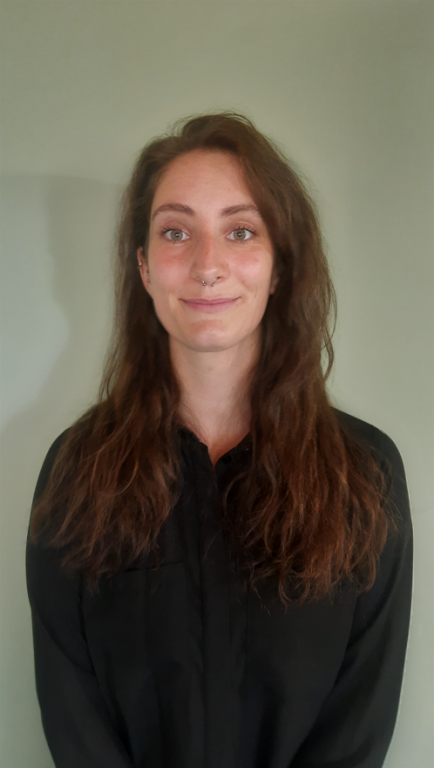
University of Edinburgh
Project Title: Neuron specific modulations of vertebrate myelination and their effects on neuronal function
Primary Supervisor: Dr Lida Zoupi
Anett Ladanyi
University of Edinburgh
Project Title: Regulation of cellular stress responses by long noncoding RNAs
Primary Supervisor: Dr Alena Shkumatava
Sandra Maria Sajan
University of Aberdeen
Project Title: Control of the programmed cell death machinery by the ubiquitin-proteasome system in neurons
Primary Supervisor: Dr Emile Hollville
Project Summary: Programmed cell death, known as apoptosis, is a crucial process in brain development and function. It plays a vital role in shaping the nervous system by eliminating developmental errors and excess neurons. As the brain matures, neurons acquire resistance to cell death, yet they retain the expression of apoptotic proteins for other functions, such as synaptic plasticity. The enigma lies in how neurons manage this delicate balance between survival and the potential for self-destruction. Caspases, a family of proteases, are the key regulators of apoptosis, but their activity in mature neurons is transient and localized. To understand how this regulation occurs, research is focused on the ubiquitin-proteasome pathway, which targets proteins for degradation, potentially offering insights into the control of caspases in mature neurons. My PhD project aims to address these knowledge gaps, using a combination of in vitro models, confocal microscopy, immunoprecipitation, protein purification, mass spectrometry and CRISPRi technology to unravel the essential ubiquitin ligases involved in regulating apoptotic caspases during synaptic plasticity, offering deeper insights into neural survival and function.
Personal Note: Hello, my name is Sandra. I graduated with a bachelor’s in Pharmacy from BITS Pilani - Hyderabad Campus, India and I did my bachelor’s thesis at the Institute of Medical Sciences, University of Aberdeen. During my thesis, I investigated a crucial risk factor in the development of dementia, namely air pollution, by trying to assess the in-vitro effects of specific iron-oxide nanoparticulate pollutants on neuronal cells. Continuing my interest in understanding brain ageing and how the fate of neurons is regulated, I started my PhD in Neuroscience at the University of Aberdeen, under the supervision of Dr Emile Hollville and Professor Bettina Platt. My EASTBIO PhD project aims to understand how the programmed cell death machinery is controlled in the brain. When I'm not doing science, I like to sing, I love summer skies, Kerala sadya and photo/videography. I enjoy listening to metal/rock bands; specifically plini, leprous, volbeat, alter bridge and slipknot.
Amelia Newton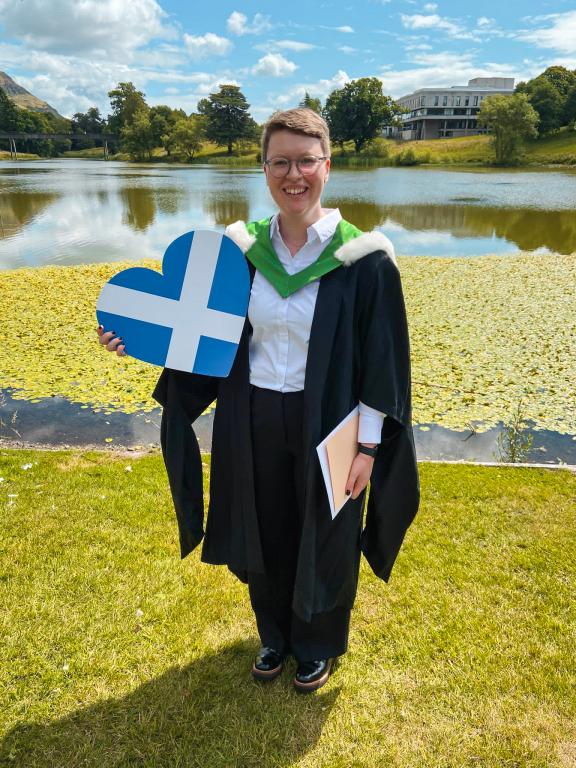
University of St Andrews
Project Title: Cognitive and neural mechanisms affecting performance under pressure
Primary Supervisor: Dr Ines Jentzsch
Project Summary: Performers often experience a negative impact of a high-pressure environment on their performance quality. This research project is designed to systematically investigate the mechanisms underlying empirical findings related to performance. The aim is to develop effective intervention methods to combat performance anxiety and choking under pressure.
Personal Note: Hi, I’m Amelia! I recently graduated from the MSc Psychology of Sport programme at the University of Stirling. My MSc thesis investigated the impact of football coach and team captain identity leadership on the psychological safety of footballers. As part of the eastBIO training programme, I will be studying the cognitive and neural mechanisms affecting performance under pressure, with the aim of developing effective intervention methods to combat performance anxiety.
Emily Robertshaw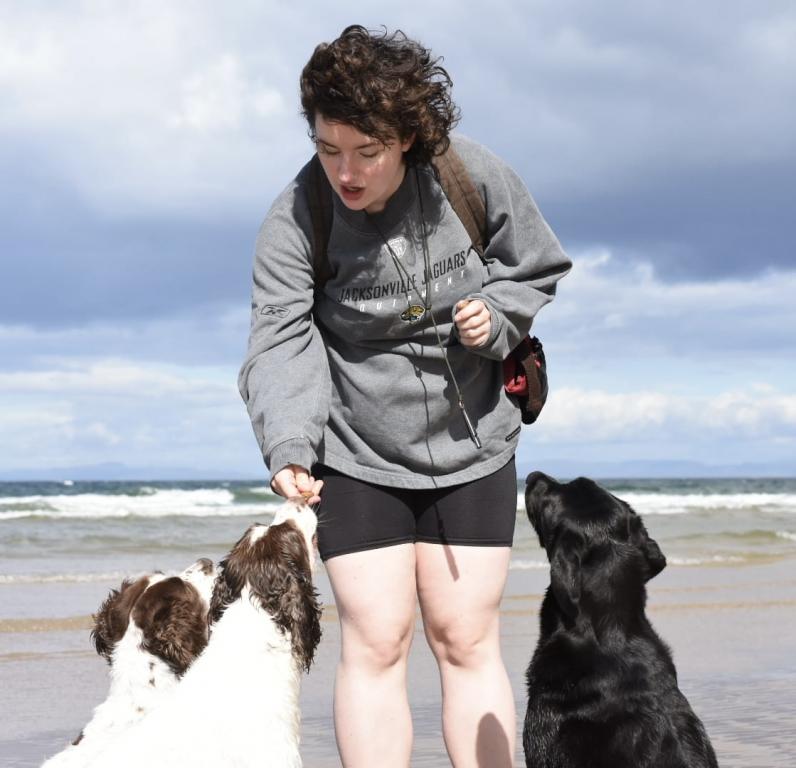
University of Edinburgh
Project Title: It's about time: the evolution and ecology of circadian rhythms in infectious disease
Primary Supervisor: Dr Sarah Reece
Project Summary: I'll be studying the evolution and ecology of circadian rhythms in Plasmodium parasites, which cause the disease malaria. I'm particularly interested in the possible impacts and fitness costs of rhythm misalignment between parasite and host/vector. I'll be using a rodent model of malaria, as this gives us an insight into aspects of parasite biology (e.g., transmission, fitness costs throughout the life cycle) that we couldn't study with cell culture or human malaria.
Personal Note: I'm British-American and was raised in the North-East of Scotland (just off the whiskey trail!). I moved to Edinburgh in 2015 to start my undergraduate degree in Genetics. After graduating, I stayed in Edinburgh and worked various technician/research assistant contracts, completed my MSc in Infection Biology at University of Glasgow, and did more waitressing than I'd like to admit. In my free time I like to crochet, have coffee with friends, and go for walks (ideally with dog(s) and ideally on a beach).
Ali Somerville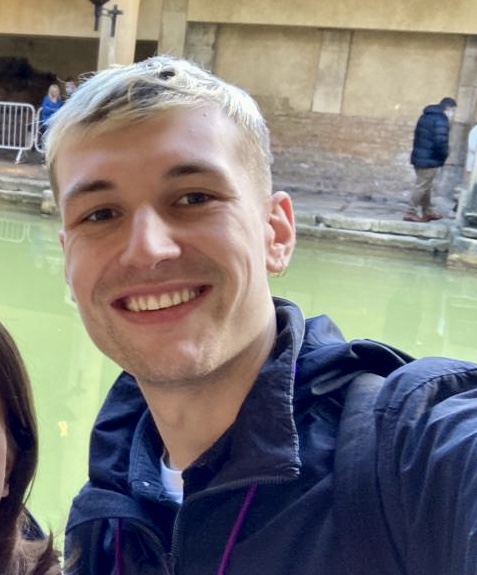
University of Edinburgh
Project Title: Understanding virus diversity and host range using Drosophila
Primary Supervisor: Dr. Darren Obbard
Project Summary: For my PhD, I will be supervised by Dr. Darren Obbard and Dr. Jenny Regan at the Institute of Ecology and Evolution. My research will focus on seeking to identify and characterise naturally-occurring DNA viruses in Drosophila species. Through experimental work, I will aim to identify the impacts of viral infection on Drosophila host physiology, immunity and life-history, with a focus on sex differences in response to infection. Combined with computational genomics, I will further establish the co-evolution and transmission dynamics of wild Drosophila-DNA virus systems.
Personal Note: Hello! I'm Ali and I'm originally from London. I graduated from the University of Bristol in 2016 and completed an MSc at the Liverpool School of Tropical Medicine in 2018, where I researched the impacts of filarial worm infection on mosquito behaviour and physiology. Since then, I have worked across different research disciplines, including critical care medicine in high-risk patients, COVID-19 treatments, and CRISPR-based gene drive technology in malaria-transmitting mosquitos. My research interests include host-pathogen interactions, entomology, and natural variation in pathogen diversity and range. In my spare time I like to make kimchi and cross-stitch.











